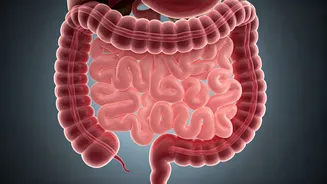The Gut-Bathroom Link
The intimate connection between your bathroom habits and the health of your gut is more significant than you might realize. The gut, or the gastrointestinal
tract, is a complex ecosystem where digestion occurs and the body absorbs nutrients. Various habits adopted in the bathroom could either support or harm the delicate balance within the gut. Issues with the digestive process can significantly impact the gut's health and even contribute to more severe health problems. This article sheds light on these critical links and provides useful guidance on making favorable modifications to one's habits and routines. It emphasizes how simple adjustments in how you approach your bathroom routine could dramatically improve the efficiency of your digestion. It is also important to recognize early warning signs of gut distress, which can indicate underlying issues that need prompt attention. Recognizing this connection allows individuals to adopt healthier behaviors, hence promoting overall wellness.
Common Bathroom Mistakes
Several common bathroom behaviors can subtly, yet significantly, harm gut health. One major culprit is the prolonged sitting duration in the bathroom. This seemingly innocuous habit can put undue pressure on the rectum, which may lead to several issues such as hemorrhoids and constipation. Furthermore, neglecting proper hygiene, or improper wiping after using the toilet, could introduce harmful bacteria, which disrupts the gut's natural balance. Another common mistake is straining during bowel movements, which can strain the rectal muscles and weaken the pelvic floor. Other mistakes include not drinking adequate water, which can lead to constipation and hard stools. Therefore, it is important to take actions to correct these behaviors. Making a conscious effort to identify and replace these unhealthy habits with gut-friendly practices is vital for fostering and maintaining optimal digestive health, ultimately improving one's well-being.
Optimizing Bowel Movements
Optimizing bowel movements is essential for a healthy gut and overall well-being. The first step involves adopting a suitable posture while defecating. Consider using a footstool. This encourages a more natural squatting position that facilitates easier bowel movements, lessening the strain on the rectum. Another area of focus should be consuming an adequate amount of fiber. Dietary fiber adds bulk to the stool, making it easier to pass. This lessens constipation and keeps the digestive system regular. Sufficient hydration is crucial, so aim for a daily intake of water that helps soften the stool and prevents constipation. Lastly, develop a consistent bathroom routine, responding promptly to the urge to defecate. Ignoring the body's signals and delaying bowel movements can lead to constipation and further disrupt the gut's natural rhythm. By implementing these practices, individuals can greatly improve their bowel movements and contribute to overall digestive health.
Lifestyle Changes for Gut Health
Beyond adjusting bathroom habits, incorporating several lifestyle changes can drastically improve gut health. The first important step is modifying dietary choices to include gut-friendly foods. Consider adding a variety of high-fiber foods such as fruits, vegetables, and whole grains. These foods provide the necessary fuel for beneficial gut bacteria. Furthermore, adding fermented foods such as yogurt and kimchi introduces beneficial probiotics, which help restore balance in the gut's ecosystem. Reducing the intake of processed foods and added sugars minimizes inflammation. Another crucial factor is managing stress through practices such as mindfulness, yoga, or deep breathing exercises, which helps reduce stress levels, as stress can negatively impact gut health. Regular exercise is also beneficial, as physical activity can enhance bowel movements and support overall digestive function. Combining these lifestyle changes can bring about a significant and positive effect on gut health, leading to greater well-being.
Warning Signs to Note
Being mindful of the warning signs of gut problems is crucial for early detection and intervention. Frequent bloating, excessive gas, or abdominal pain may signal underlying digestive issues. Changes in bowel habits, such as persistent diarrhea or constipation, should be taken seriously. Furthermore, any unusual changes in stool consistency or the presence of blood should prompt an immediate consultation with a healthcare professional. Other potential symptoms include unexplained weight loss, fatigue, and skin problems. Ignoring these warning signs can result in the worsening of the condition. Early detection and prompt treatment are key to preventing these problems from developing into chronic conditions. Individuals experiencing these symptoms should consult with a healthcare professional to identify the root cause of the problem and get appropriate treatment. Being proactive about gut health involves knowing how to detect these warning signs, which allows for timely intervention, and can improve digestive health and overall well-being.













